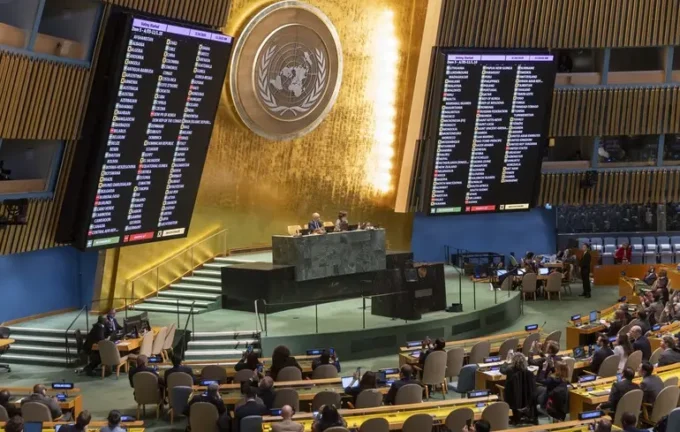Establishing a Special International Tribunal for Russia: Alternatives and Challenges in the Context of Global Security

The possibility of creating a special tribunal to address Russia's aggression against Ukraine has sparked intense debates among experts in international law and security. One of the most intriguing aspects of this idea is that such a tribunal cannot be established through the traditional models due to veto powers within the UN Security Council, especially considering the role of permanent members. Consequently, questions arise regarding the feasibility of seeking alternative platforms for legitimizing such an institution, such as through the UN General Assembly or other international organizations. Reflecting on historical precedents, notable examples include cases where the General Assembly assumed functions typically reserved for the Security Council, such as the 'Uniting for Peace' resolution of 1950, which responded to the Security Council's paralysis caused by vetoes. This practice laid the groundwork for developing universal mechanisms of accountability for international crimes. Expert Gunduz Mamedov emphasizes that the current situation is similar—conflicting interests within the Security Council and its blocking role in addressing aggression. It is important to note that while the General Assembly lacks formal authority to create tribunals, history shows that it has initiated and supported such mechanisms, particularly during the 1950s with resolutions that facilitated the creation of judicial processes. Mamedov recalls that the modern international legal landscape is flexible and dynamic, allowing for unconventional solutions. Creating a tribunal to prosecute crimes against Ukraine could be achieved without waiting for Security Council approval, leveraging these principles. Discussing the prospects of such institutions, experts stress that an independent universal court would be a more effective tool to confront contemporary challenges. However, political compromises, funding, security guarantees for judges and participants—these remain significant obstacles. Nonetheless, exploring alternative pathways for establishing just and legitimate mechanisms to prosecute international crimes remains urgent and relevant in modern diplomacy and law. Further insights and analyses on this topic can be found in publications by Gunduz Mamedov, accessible through the provided link.

